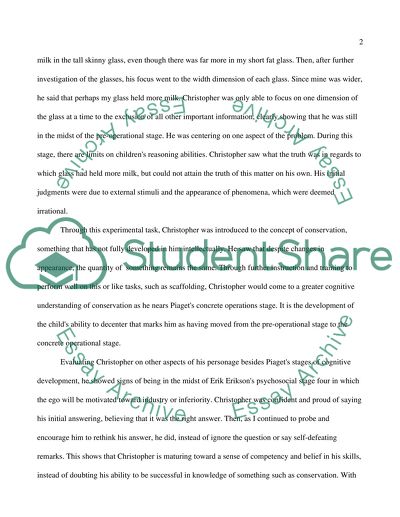Child developmental Psychology Essay Example | Topics and Well Written Essays - 500 words. Retrieved from https://studentshare.org/miscellaneous/1506932-child-developmental-psychology
Child Developmental Psychology Essay Example | Topics and Well Written Essays - 500 Words. https://studentshare.org/miscellaneous/1506932-child-developmental-psychology.


